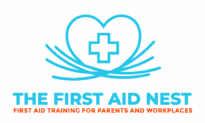First Aid For Heart Attack
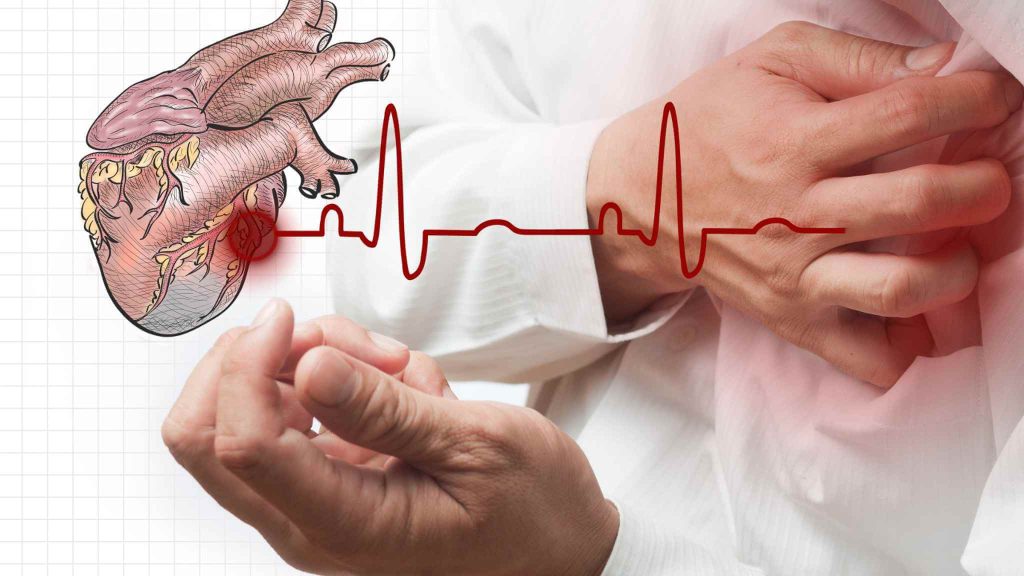
Heart attacks are one of the leading causes of death worldwide, and they can strike at any moment.
It’s a frightening thought, but knowing how to respond in such a situation could save someone’s life. That’s why it’s essential to learn first aid for heart attack – you never know when you or someone around you might need it.
In this blog post, we’ll discuss what exactly a heart attack is, how to recognize the signs and symptoms, and most importantly, what immediate actions you should take to provide first aid for heart attack victims.
So let’s dive in!
What is a heart attack?
A heart attack, also known as a myocardial infarction (MI), occurs when the blood flow to the heart muscle is blocked. This causes damage to the affected area of the heart and can be life-threatening if not treated promptly.
The most common cause of a heart attack is coronary artery disease (CAD), which develops over time due to a buildup of plaque in the arteries that supply blood to the heart. When this plaque ruptures, it can form a clot that obstructs blood flow.
Other less common causes of heart attacks include spasms in the coronary arteries, drug use or abuse, and congenital abnormalities.
Heart attacks can present with various symptoms such as chest pain or discomfort, shortness of breath, nausea or vomiting, lightheadedness or fainting spells. It’s crucial to act quickly if you experience any sudden onset symptoms since every minute counts in providing first aid for Heart Attack victims.
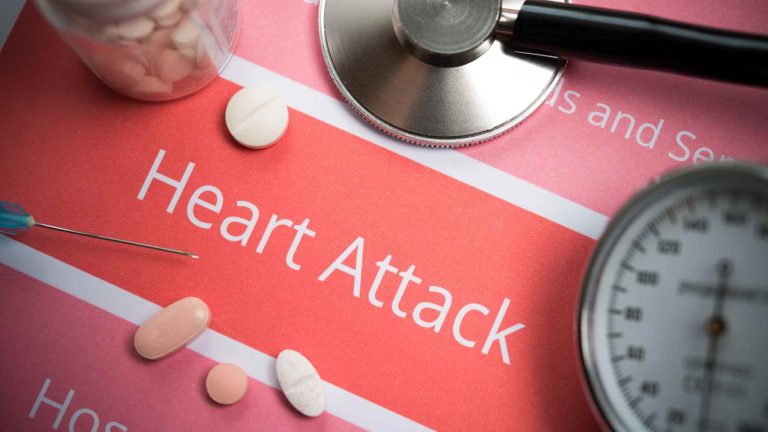
How can I tell if someone is having a heart attack?
It’s important to recognize the warning signs of a heart attack, as prompt action can save someone’s life.
The most common symptom is chest pain or discomfort that may feel like pressure, squeezing, fullness or pain. It may last for several minutes and come and go. However, not everyone experiences chest pain during a heart attack.
Other symptoms include shortness of breath, nausea/vomiting, lightheadedness/dizziness, jaw/neck/back pain and cold sweat. Women are more likely to experience atypical symptoms such as fatigue and jaw pain.
If you suspect someone is having a heart attack, don’t ignore their complaints or wait to see if they get better on their own. Call emergency services immediately.
It’s also important to note that some people may not have noticable symptoms at all (known as silent heart attacks), especially those with diabetes or older adults. Regular health check-ups can help detect these types of heart attacks early on.
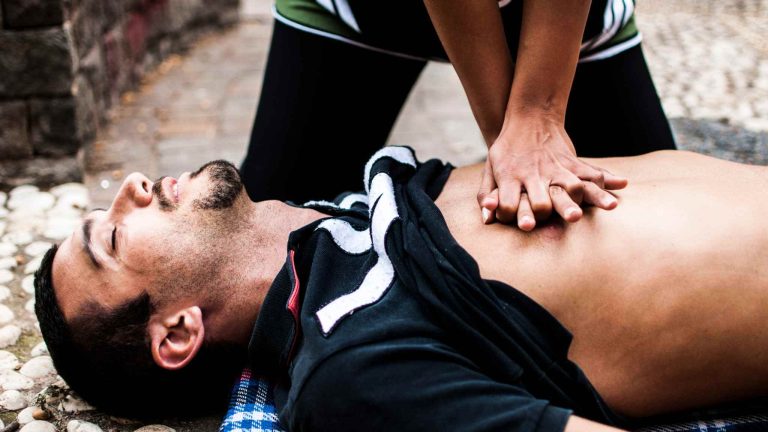
What is the difference between a heart attack and cardiac arrest?
Heart attack and cardiac arrest are two serious medical conditions that often get confused with one another. While both can have severe consequences, they differ in their causes and symptoms.
A heart attack occurs when the blood flow to a part of the heart is blocked, usually due to a buildup of fat, cholesterol or other substances within an artery. This blockage damages the heart muscle and can cause chest pain or discomfort among other symptoms.
On the other hand, cardiac arrest happens when there is an interruption in the electrical signals that control the heartbeat. As a result, the heart stops beating suddenly and without warning which leads to loss of consciousness and death if not treated immediately.
In summary, while both involve issues with heart function, a heart attack is caused by a blockage in blood flow whereas cardiac arrest is when the heart stops beating or the person stops breathing.
Understanding these differences can help you recognize and respond appropriately during an emergency situation involving either condition.
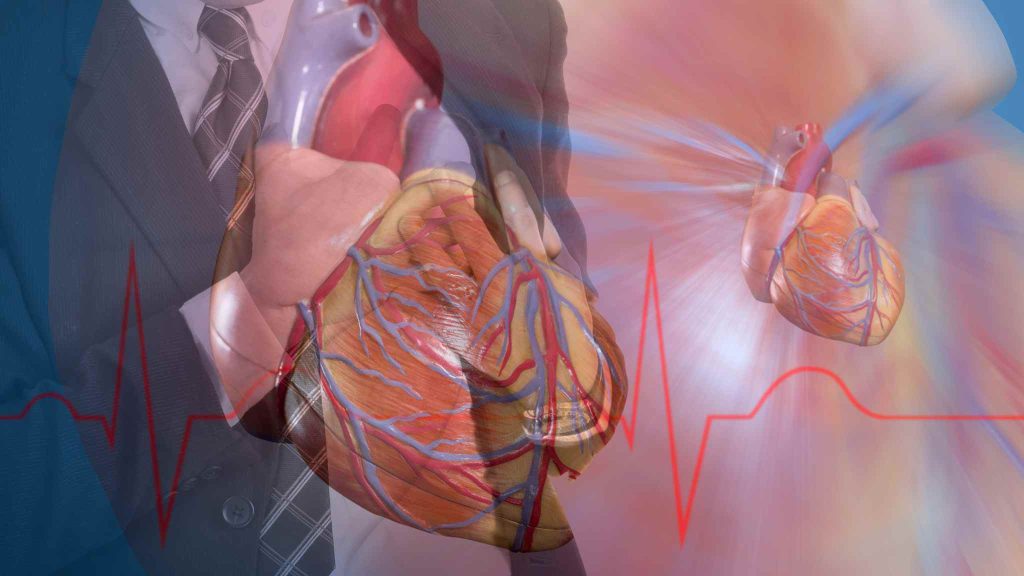
Should I give them aspirin?
Should I give them aspirin?
One of the most common questions that people ask when someone is having a heart attack is whether or not they should give them aspirin. Aspirin can help to prevent blood clots from forming, which can be a major cause of heart attacks.
However, it’s important to note that giving someone aspirin during a heart attack isn’t always the right answer. If the person has had an allergic reaction to aspirin in the past or has bleeding disorders, then giving them aspirin could actually do more harm than good.
Additionally, if the person is already taking blood-thinning medication such as warfarin or heparin, then giving them additional aspirin could also have negative consequences.
If you’re unsure whether or not you should give someone aspirin during a heart attack, it’s best to err on the side of caution and wait for emergency medical services to arrive. They will be able to provide professional advice and determine what course of action is best for the patient.
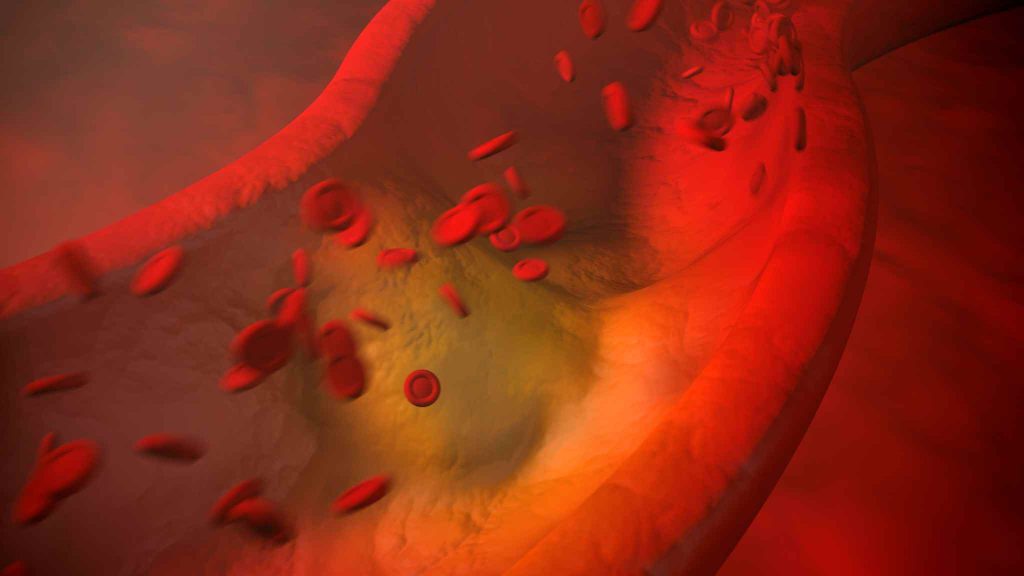
Should they take any heart medication they have?
One of the common questions that people may have in this situation is whether they should take any heart medication they have.
The answer depends on what type of medication the person has and their specific circumstances. If the individual has nitroglycerin, for example, which is commonly used to treat angina (chest pain), they can take it as directed. Nitroglycerin helps relax blood vessels and increase blood flow to the heart.
However, if the person has other medications prescribed for their heart condition or disease, such as beta-blockers or calcium channel blockers, they should not take them without consulting with a healthcare professional first. These medications may interact with other drugs or exacerbate certain symptoms during a heart attack.
It’s also important to note that taking any medication during a heart attack does not substitute emergency medical attention. The best course of action is always to call emergency services immediately and follow first aid procedures while waiting for help to arrive.
In summary, if an individual experiencing a heart attack has nitroglycerin available for treating angina, they can take it as directed. However, all other medications should be avoided unless instructed by a healthcare professional in advance of an emergency situation.
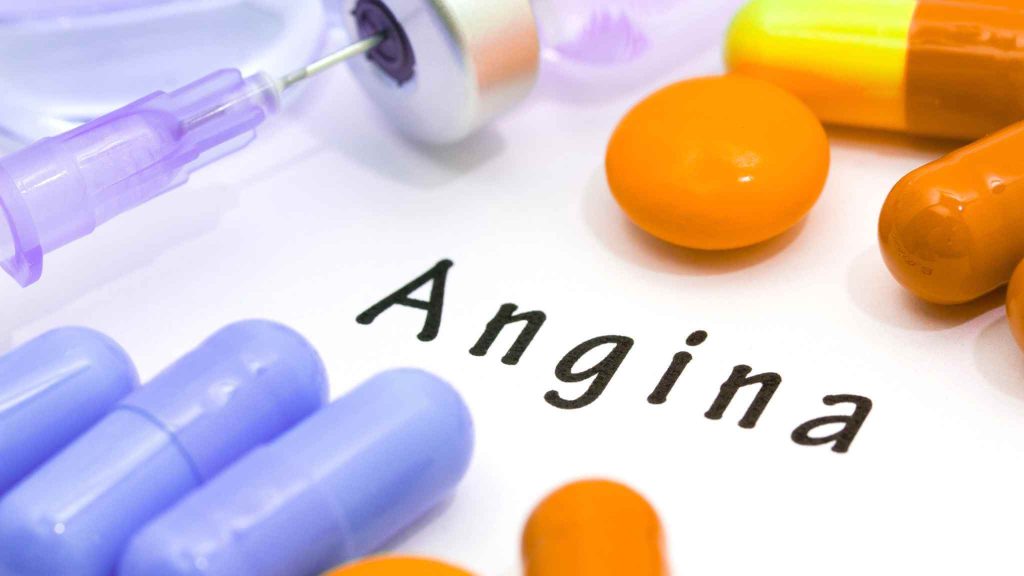
What is angina?
Angina, also known as angina pectoris, is a condition that causes chest pain or discomfort. It occurs when the heart doesn’t get enough blood and oxygen due to narrowed or blocked arteries. Angina can feel like pressure, tightness, squeezing, or burning in the chest area.
Angina symptoms may also include shortness of breath, dizziness, nausea, sweating and fatigue. The pain usually lasts for a few minutes and goes away with rest or medication.
There are two main types of angina: stable angina and unstable angina. Stable angina occurs during physical activity or emotional stress but goes away with rest while unstable angina is more severe and can occur even at rest.
People who experience frequent episodes of stable angina may be prescribed medications such as nitroglycerin to relieve their symptoms while undergoing further evaluation by a doctor.
It’s important to seek medical attention if you suspect you have any form of anginal pain as it could be an indication of an underlying heart disease that requires immediate attention.
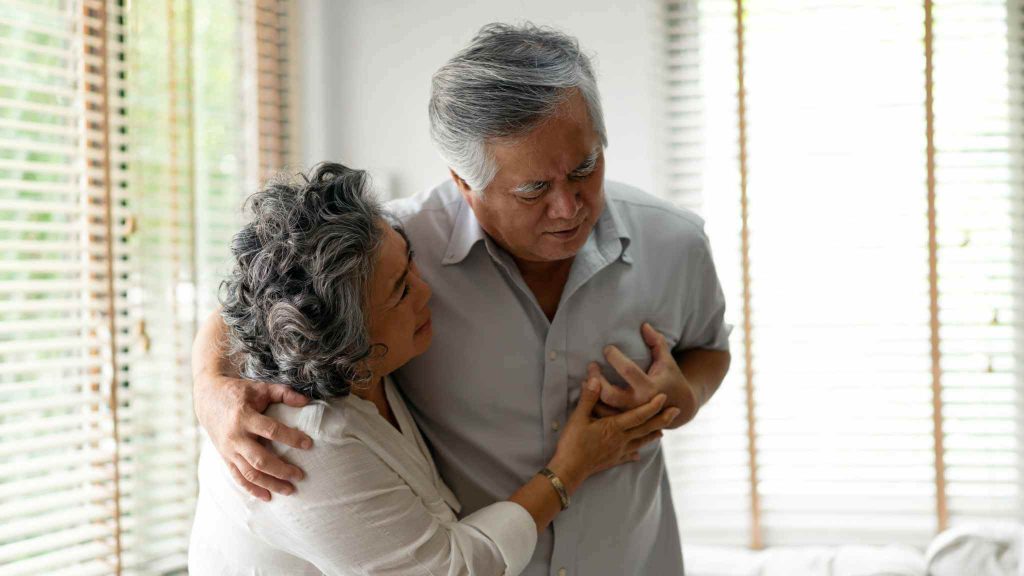
What should I do if someone becomes unresponsive?
If someone becomes unresponsive during a heart attack, it is crucial to act fast.
First, check if the person is breathing by placing your ear close to their mouth and nose while looking at their chest for any signs of movement.
If they are not breathing, begin CPR immediately. Place one hand on top of the other in the centre of the chest and press down hard and fast, 2 compressions per second, until help arrives.
If there is a defibrillator nearby, use it as soon as possible. Follow the instructions provided with the device carefully.
It’s important to remember that time is critical when someone becomes unresponsive, start CPR. Every minute that passes without treatment decreases their chances of survival.
Stay calm and focused while waiting for emergency services to arrive. Keep reassuring them that they will receive immediate medical attention and continue providing first aid until professional help arrives.
By knowing what steps to take when someone becomes unresponsive during a heart attack, you can potentially save their life.
You will learn CPR and how to use an AED (defibrillator) by completing a certified first aid course.
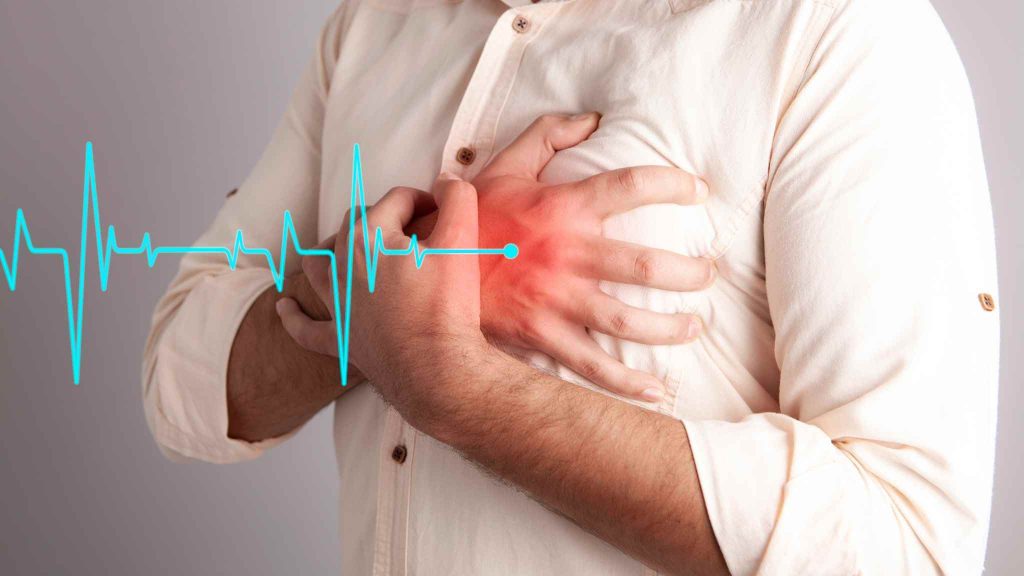
Warning signs of a heart attack
Knowing the warning signs of a heart attack is crucial in providing timely first aid. The symptoms can vary between individuals, but some common ones include chest pain or discomfort, shortness of breath, nausea or vomiting, lightheadedness or dizziness and discomfort in other areas such as the arms, back, neck or jaw.
It’s important to note that not all heart attacks present with intense chest pain. Some people may only experience mild discomfort while others may have no symptoms at all. This is why it’s essential to pay attention to any unusual sensations in your body and seek medical help if you suspect a problem.
Another sign of an impending heart attack is angina – this refers to chest pain caused by reduced blood flow to the heart muscles. The pain can feel like pressure or squeezing and often occurs during physical activity or stress.
If you notice any potential warning signs of a heart attack in yourself or someone else, don’t hesitate to call for emergency medical services right away. Prompt treatment could save
Someone’s life and prevent long-term damage from occurring due to delayed intervention.
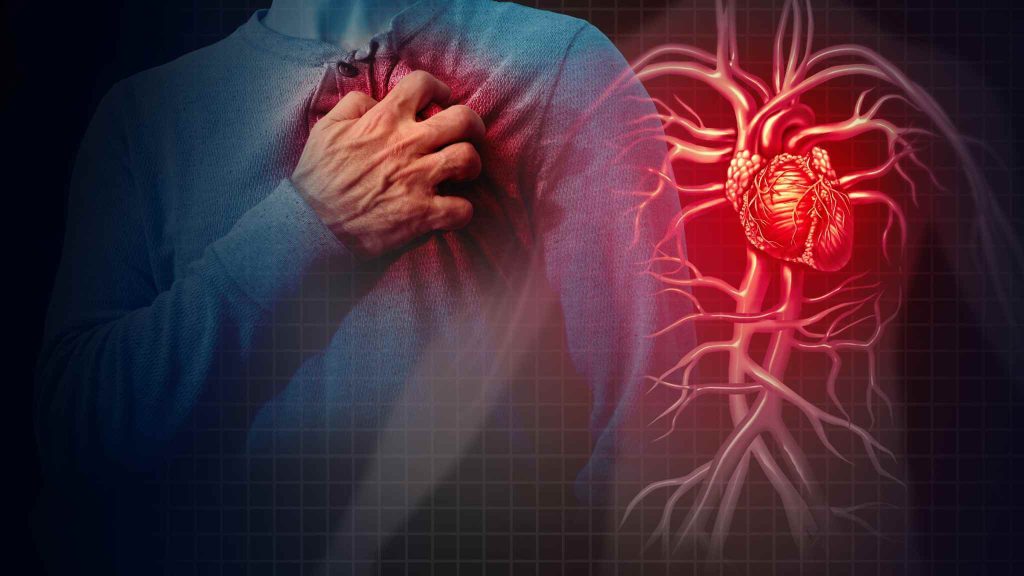
What to do if you see someone having a heart attack
It can be a scary and overwhelming experience to witness someone having a heart attack. It’s important to stay calm and take immediate action to provide them with the best chance of survival.
The first thing you should do is call emergency services right away. Time is critical in these situations, so don’t hesitate or assume that someone else will make the call.
Next, have the person sit down if they are able to and loosen any tight clothing around their chest area. If they are unconscious or unresponsive, start CPR immediately.
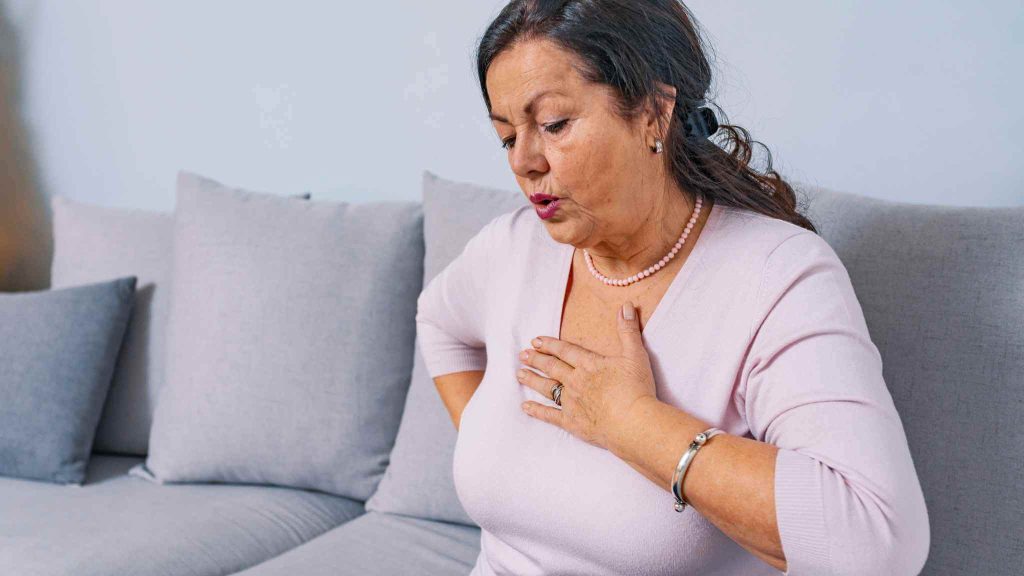
First aid for heart attack
If you witness someone having a heart attack, it’s important to act quickly and provide first aid. The first step is to call emergency services immediately. While waiting for help to arrive, there are several things you can do to assist the person.
Firstly, have them sit down or lie down.
If they have any nitroglycerin medication prescribed by their doctor for angina symptoms, help them take it as directed. Encourage them to remain calm and try not to move too much while waiting for medical assistance.
It’s also important that you monitor their breathing pattern so that you can alert paramedics if there are any changes. Remember that providing prompt care at the onset of a heart attack can make all the difference in saving a life!
If someone experiencing chest pain loses consciousness, put them in the recovery position. If they stop breathing start CPR immediately.
Always call emergency services first.
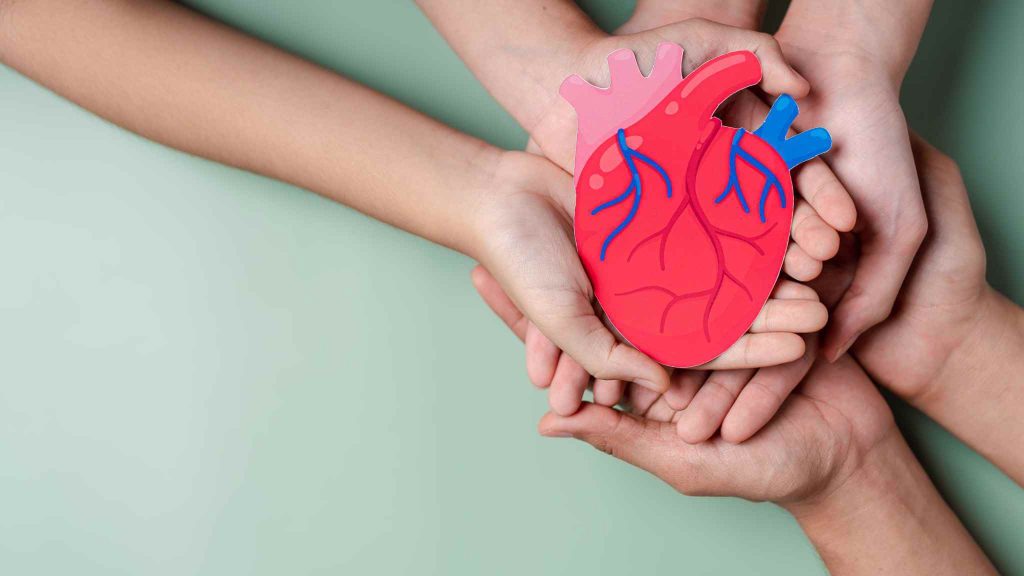
When to call emergency services
Knowing when to call emergency services is crucial in the event of a heart attack. If you suspect someone is having a heart attack, it’s important to act quickly and call emergency services immediately.
One key indicator of a heart attack is chest pain or discomfort that lasts more than a few minutes. Other warning signs may include shortness of breath, nausea or vomiting, sweating, lightheadedness, or discomfort in other areas such as the arms, back, neck or jaw.
If you suspect someone is having a heart attack and they are showing any of these symptoms, it’s essential to call emergency services right away. Don’t wait for the symptoms to go away on their own – time is critical when it comes to getting treatment for a heart attack.
When calling emergency services be sure to provide as much information as possible about the person’s condition and location. This will help paramedics arrive prepared with
Necessary equipment and medications needed for treatment.
Remember that even if you’re not 100% sure that someone is experiencing a heart attack but they are exhibiting worrying symptoms – don’t hesitate to call for professional help.

In Summary
Being prepared and knowing what to do in the event of a heart attack can be critical in saving someone’s life. Remember that time is of the essence when it comes to getting medical attention for a heart attack. Knowing the warning signs and taking quick action by calling emergency services, administering first aid, and staying with the person until help arrives can greatly increase their chances of survival.
It’s also important to note that prevention is key when it comes to heart health. Maintaining a healthy lifestyle by eating a balanced diet, exercising regularly, not smoking or vaping, managing stress levels, and getting regular check-ups from your doctor can all help reduce your risk of having a heart attack.
By following these tips and being vigilant about our own heart health as well as those around us, we can work together towards preventing heart attacks and keeping ourselves and our loved ones safe.
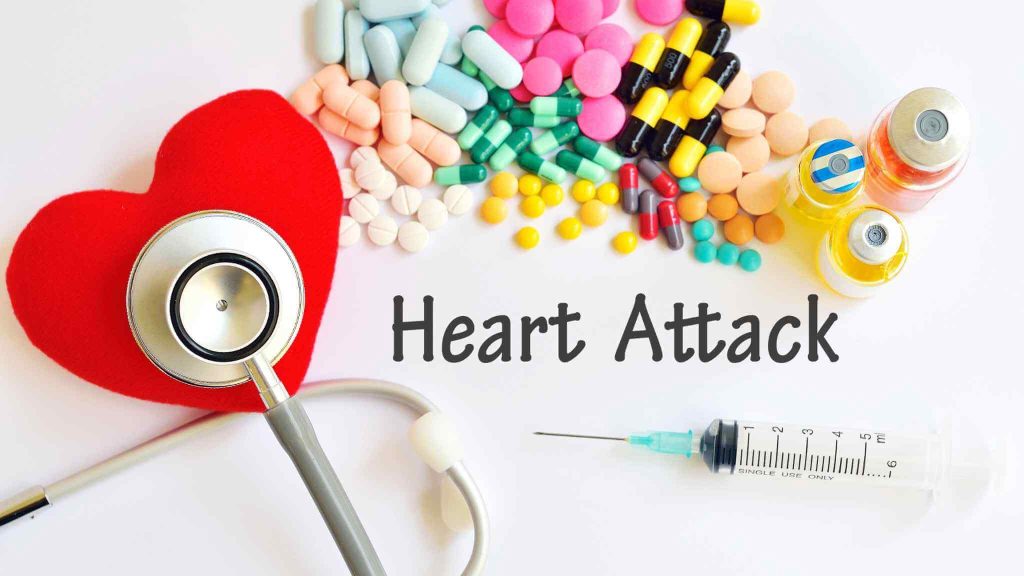
It’s also important not to allow the person experiencing a heart attack to exert themselves by walking or moving around too much. Encourage them to remain still until help arrives.
Remember that every second counts when it comes to treating a heart attack. Taking quick action could mean the difference between life and death for someone experiencing this serious medical event.
First Aid Certificate
The First Aid Nest run public and workplace first aid courses, Australia wide.
Our workplace first aid courses can be run at your site.
Our public classes are here in Sydney and are the best option if you are an individual, a couple or a group of just a few people.
Our sophisticated system will take the headache out of renewal for you too. Lose your certificate? No problem, just log in and download your certificate again anytime. We will also send you reminders about when your certificate is about to expire!
Book your spot or workplace with us today, contact us with any questions, or head to our FAQ page.
